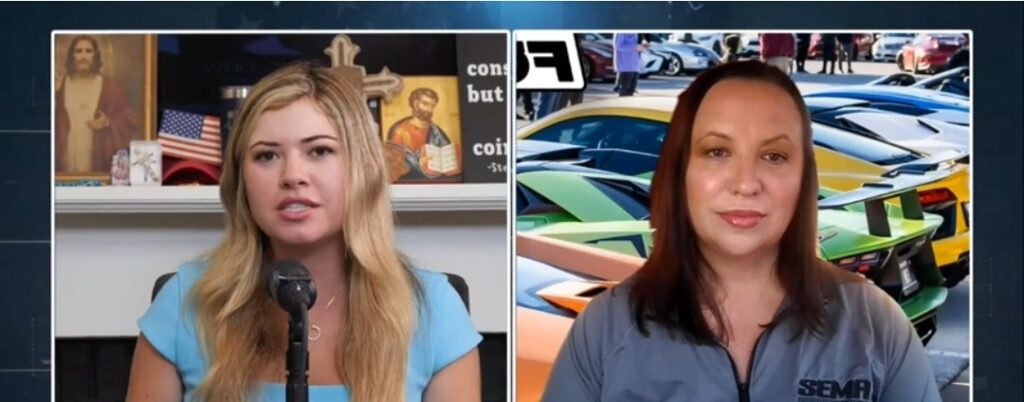On October 4, 2024, War Room co-host Natalie Winters engaged in a critical discussion with Driving Force Action director Karen Bailey-Chapman regarding the Biden-Harris administration’s ambitious electric vehicle (EV) mandates. Winters initiated the conversation by probing into the nature of these policy proposals, which have come under considerable scrutiny for being overly radical. Bailey-Chapman pointedly referred to the mandates as not merely a push for increased electric vehicle usage but more accurately labeled an outright ban on internal combustion engine vehicles. She highlighted a significant limitation within the proposed measures, noting that only five plug-in hybrid and electric vehicles currently meet the stringent standards set by the administration, effectively sidelining the vast majority of gas and diesel vehicles that consumers currently rely on.
As the discussion progressed, Winters delved into the underlying motives driving the push for banning combustible engines. She asked Bailey-Chapman to explain why such drastic measures were deemed necessary by the left. In her response, Bailey-Chapman underscored the advances made in the automotive industry, which have made vehicles more powerful while simultaneously being more fuel-efficient. Bailely-Chapman emphasized that over the past century, technological innovation has yielded a hybrid of performance and environmental consciousness that is undermined by a singular focus on EV technology. This brings to light the broader issue of environmental policies being shaped by a narrative that favors one solution over the myriad of options available in a diverse automotive market.
Bailey-Chapman further emphasized the importance of consumer choice in the automotive sector, arguing that the government’s push for these mandates is a direct threat to that choice. According to her, the Biden-Harris administration seems intent on diminishing the options available to consumers, which she views as an encroachment on personal freedoms. She indicated that a technology-neutral stance should be maintained, allowing consumers to make informed decisions about the vehicles they choose to drive rather than forcing an ideological agenda concerning what type of technology should dominate the market. This highlights a significant point of contention between advocates for government intervention in environmental issues and those who prioritize market-driven solutions that respect consumer autonomy.
Moreover, Bailey-Chapman extended her critique to the broader implications of the government’s policies under the current administration, suggesting that they embody an ‘America last’ approach. By sidelining domestic automotive technologies and innovations in favor of a radical push for electric vehicles, she argued, the administration is inadvertently undermining the strength and competitiveness of the American automotive industry. This sentiment resonated with Winters, who echoed her concerns about the detrimental impact on American ingenuity and the overall economy as the push for EVs becomes a central policy focus.
The conversation crystallized the concern among industry advocates and political commentators alike regarding the potential overreach of governmental policies in the automotive sector. The notion that a one-size-fits-all regulation could lead to unintended consequences and ultimately harm consumers and the economy is a central theme in the ongoing debate over energy policies and technological innovation. In this context, defenders of traditional vehicles argue that a diverse array of vehicle technologies – including gas, diesel, hybrids, and electric – are essential not only for consumer choice but also for maintaining a robust and competitive automotive industry.
In conclusion, the discussion held between Natalie Winters and Karen Bailey-Chapman offers a glimpse into the contentious landscape surrounding electric vehicle mandates and governmental influence in the automotive sector. Their dialogue reflects broader ideological battles over consumer sovereignty, innovation, and the role of government in shaping market dynamics. As the Biden-Harris administration continues to advocate for radical policy changes, the conversation encourages critical reflection on the long-term ramifications for consumers, the economy, and the environment itself. It raises important questions about how the nation can best navigate the transition toward a more sustainable future while preserving the values of choice and innovation that have characterized the American automotive industry for generations.

